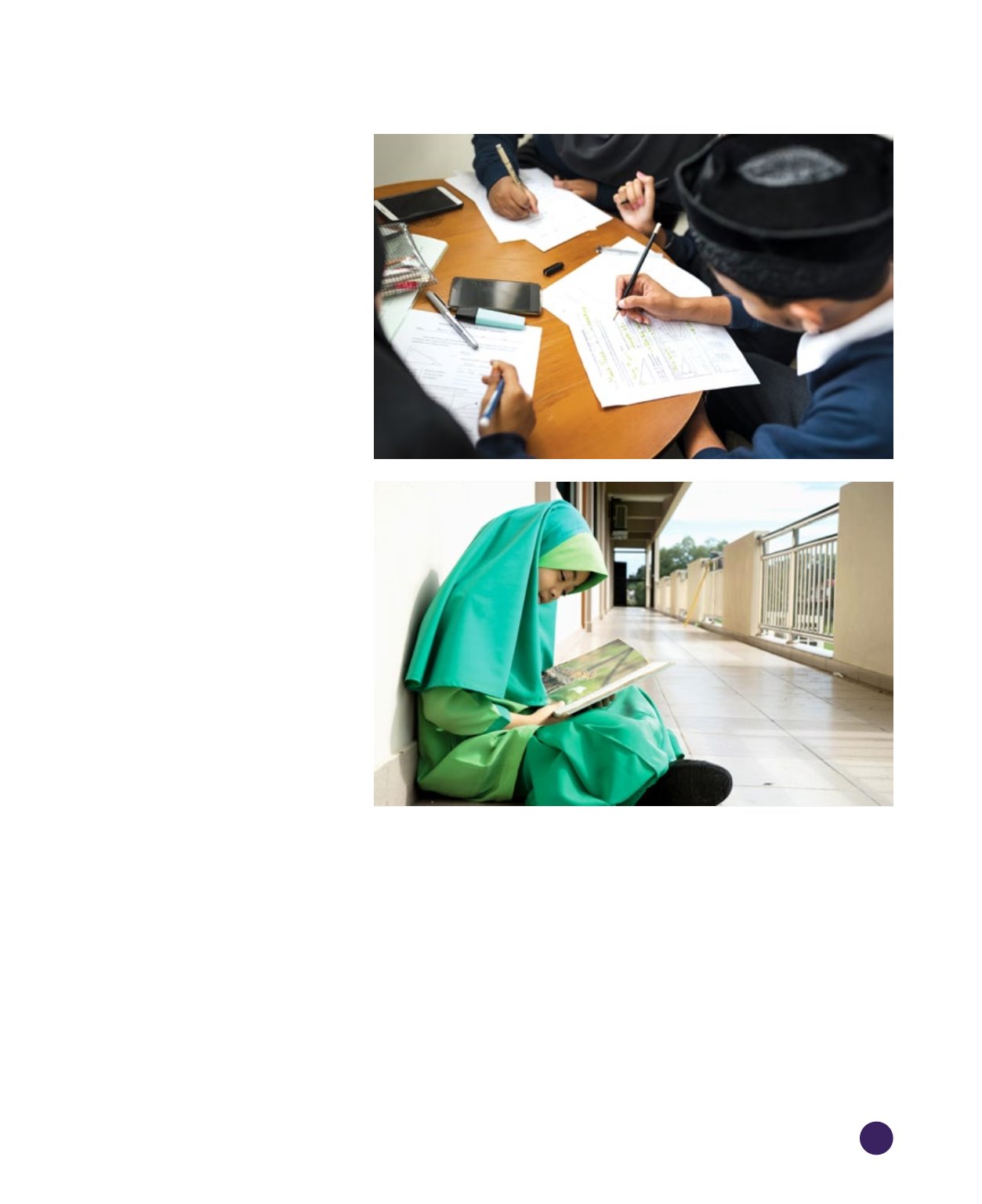

197
EDUCATION
Meanwhile, Arabic schools in Brunei offer
two core curriculums: the national curriculum
for general subjects and the Ma’had
Buhuth al-Islamiah curriculum from Egypt
for religious subjects and Arabic language.
These curriculums are based on the National
Education System for the 21
st
Century (SPN21)
to produce students equipped with skills in line
with the 21
st
Century.
After 50 years since the rst Arabic school
– Hassanal Bolkiah Boys Arabic Secondary
School (SMALHB) was built in 1964, there are
now seven Arabic schools in Brunei: four in
Brunei-Muara and one each in Belait, Tutong
and Temburong. These Arabic schools are the
Temburong Arabic Preparatory School, the
Belait Arabic School, the Bandar Seri Begawan
Arabic Preparatory School, the Rimba Arabic
School, Mahad Islam Brunei in Tutong, the
Raja Isteri Pengiran Anak Hajah Saleha Girls
Arabic Religious Secondary School, and the
SMALHB.
Religious schools start from pre-school.
Education in Arabic schools begins in Year Five
and is offered until pre-university level for male
students and Year 11 for female students.
The recently built Rimba Arabic School can
accommodate 2,000 students with classrooms,
science and language laboratories, lecture
halls, multi-purpose hall, teachers’ room,
library, hostel, surau, canteen and a eld, to
accommodate the growing number of students
enrolling in religious studies.
Meanwhile, the Ministry of Religious Affairs
also offers religious classes for adults with
the implementation of the General Rules of
the Religious Adult Class 1980 number:31
JUB108/1980, and the Al-Quran Adult Class
established separately and has been combined
into what is now known as the Religious Adult
class teaching subjects such as Tawheed, Fiqh,
Tasawuf and Al-Quran.
Religious lessons currently taught are based on
the religious syllabus in primary level religious
schooling, where the syllabus for Religious
Adult Classes at the primary level is according
to the syllabus in Year I to Year III, while the
syllabus for the advanced classes follow that of
those in Year IV to Year VI.
The ministry also offers further education in
special institutions which are divided into four
categories such as Uniformed Training Centres,
Treatment Centres, Rehabilitation & Guidance
Centres and Special Needs Centres.









